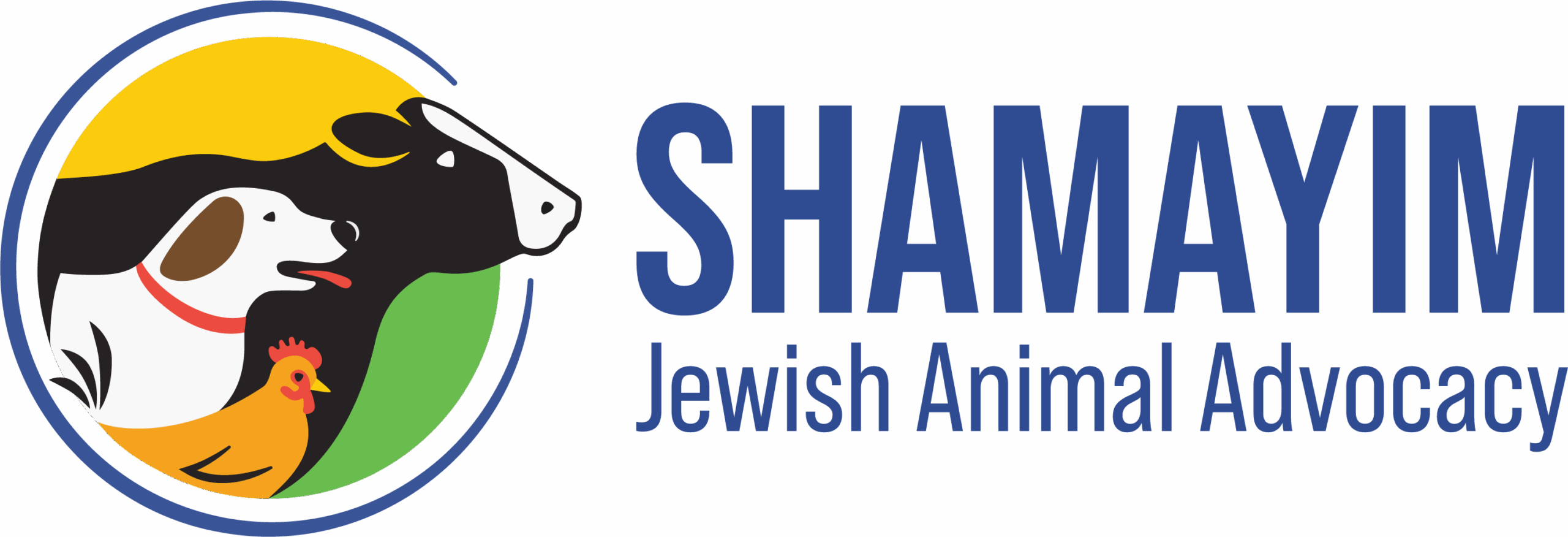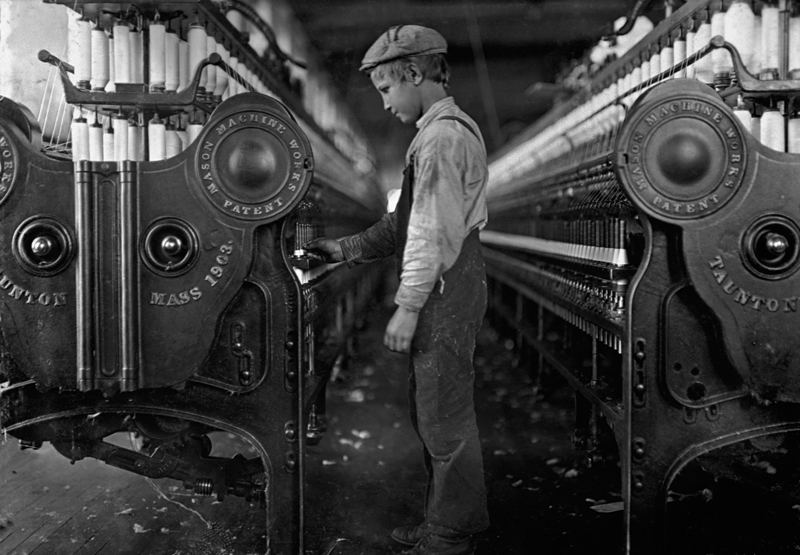Could you ever have imagined the words ‘children’ and ‘head splitters, jaw pullers, and neck clippers’ in the same sentence? Unfortunately, the reality of factory farming is often worse than what we can imagine. In 2024, the Labor Department found that 11 children were employed on overnight shifts at a pork processing plant in Iowa to clean dangerous equipment such as head splitters, jaw pullers, band saws, and neck clippers. Seaboard Triumph Foods, who operate the plant, has been illegally employing children since at least 2019.

Factory farming doesn’t just cause suffering to animals and destroy the planet, it also leaves a trail of human exploitation in its wake, particularly in slaughterhouses.
Slaughterhouses, now commonly called ‘processing plants’ to distance themselves from the cruel reality behind their doors, began operating in London in the 1800s. Even back then, people protested against them due to fears that exposure to violence would make people more tolerant of, and prone to, violence. Instead of closing down the slaughterhouses, they moved them away from public view, and in doing so made them ripe for exploitation.
Modern slaughterhouses bear little resemblance to their 19th-century predecessors. Technological advancements and industry consolidation mean fewer facilities now kill more animals. In 2020, just 50 slaughterhouses processed 98% of the nearly 33 million cows slaughtered in the United States.
While slaughterhouses have become more industrialized since the 1800s, there is still a large amount of physical work carried out by people. I’m guessing that you, like most people, would not want to work in a place whose sole purpose is to kill as many animals as quickly as possible. Since most people don’t want to work in slaughterhouses, the owners of these plants fill these labor shortages by employing and exploiting people in vulnerable situations.
Slaughterhouse work is some of the most exploited labor in the world, often relying on disenfranchised groups such as migrants, prisoners, the financially desperate, or in this case children. These people work long hours in dangerous, dirty, and psychologically damaging places for one reason – people want cheap meat.
Producing cheap meat requires costs to be minimized in every possible way, often at the expense of proper staff training, safety equipment, fair wages, auditing, and labor practices. For Seaboard Triumph Foods, this manifests itself through working with multiple cleaning companies that illegally employed children as young as 13.

These children are not only exposed to dangerous equipment, such as corrosive cleaners and ‘head splitters’, but they are also exposed to the brutality involved in the non-stop slaughtering of animals that takes place in processing plants. Children who witness violence against animals are more likely to become desensitized and commit violent acts against other animals or people.
Slaughterhouses are places of death, or to be more accurate, murder. Vulnerable children are working in murder-houses. We should not tolerate this.
If you think that eating only kosher meat is the solution to avoiding exploitation, then think again. PETA has been working to expose the suffering within kosher slaughterhouses since 2004. Their investigations into Agriprocessors (now known as Agri Star), the world’s largest glatt kosher slaughterhouse based in Iowa, should raise serious concerns for people who buy kosher meat. They have found multiple and consistent cases of animal and human abuse.
PETA’s 2004 investigation of Agriprocessors uncovered nearly 300 instances of inhumane slaughter. Their findings revealed that cows were subjected to electric shocks on their sensitive faces, and fully conscious animals had their tracheas and esophagi torn out with meat hooks or knives. Many of these animals were left writhing in pools of blood, struggling to stand for up to three minutes as blood poured from their wounds.
The staff at this kosher slaughterhouse also faced harsh and unsafe working conditions. Reports highlighted a lack of safety training, severe injuries—some requiring amputations—frequent verbal abuse, and extremely low wages. This has led to violence in the workplace, including a stabbing in 2013. The owners and managers of the plant were charged with over 9,000 counts of child labor violations in 2008. I expressed my dismay when the owner of Agriprocessors, Mr. Sholom Rubashkin, had his sentence commuted in 2017, having only served 8 years of his 27-year sentence.
It is plain to see that no matter how ‘ethical’ and kosher the slaughter of animals is, eating meat and dairy leads to harm and exploitation.
The exploitation of people not only conflicts with our moral compass but also conflicts with the teachings of Judaism. We find the need for humane labor policies directly in the Torah, as it says in Deuteronomy 24:14:
“You shall not abuse a needy and destitute laborer, whether a fellow Israelite or a stranger in one of the communities of your land.”
If we look at the reality of slaughterhouses in today’s society, filled with the exploitation of vulnerable people, we can see that there is a clear violation of this commandment.
In the grace after meals, we traditionally recite from Psalm 126:
“When the Lord restores the fortunes of Zion
—we see it as in a dream—
our mouths shall be filled with laughter,
our tongues, with songs of joy.”
We dream of a world filled with the laughter of children. How can we hope for children to laugh after facing the murder of millions of animals, dangerous working conditions, and exploitation?
Eating meat or dairy leads to factory farming. Factory farming leads to large slaughterhouses. Slaughterhouses lead to children as young as 13 cleaning ‘jaw pullers’ with corrosive cleaners, and other forms of exploitation.
Veganism offers a way to opt out of this cycle of harm. By choosing not to have some chicken with your Shabbat dinner, you can contribute to a world where animals are treated with compassion, the planet is preserved, and people are not subjected to exploitation.
Moral living requires more than abstaining from direct harm—it involves rejecting systems that perpetuate harm. Three times a day you have the choice whether to take part in a system of oppression or a system of restoration and positivity. I implore and hope that you choose the latter.
A young mill worker, unknown city in the United States, 1918. Corbis, through The New York Times photo archive, via their online store, here


Leave a Reply